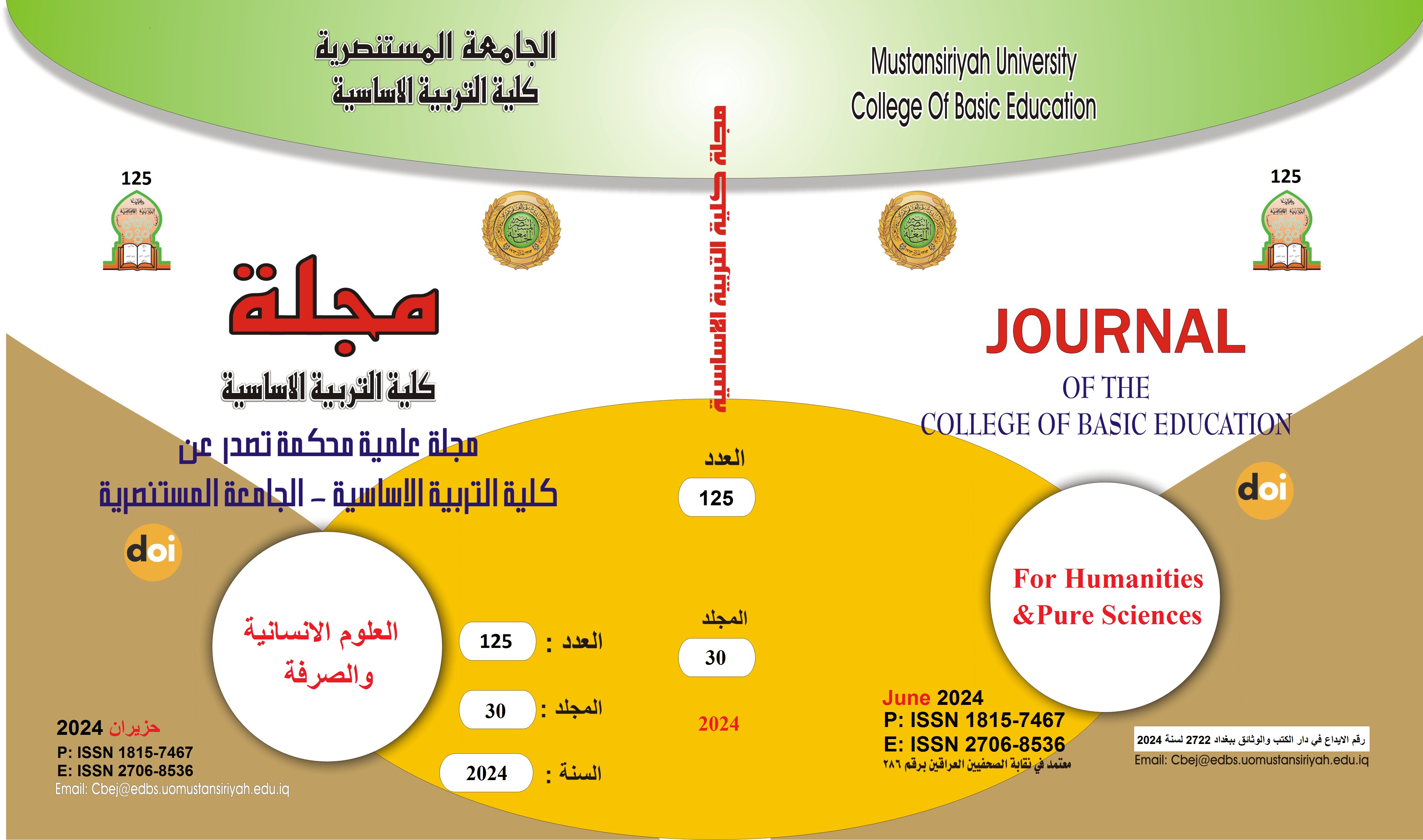The Effect of The EDJA Model on The Achievement of Second-Grade Intermediate Students In Mathematics And Their Investigative Thinking
Main Article Content
Abstract
The goal of the current research is to identify the effect of the E.D.J.A model on the achievement of second-year intermediate students in mathematics and their investigative thinking. The research sample consisted of (58) male and female students from the second intermediate year, for the second semester of the academic year (2022-2023), and a school was chosen ( Mixed Zakat Medium) affiliated with the General Directorate of Education of Diyala/Al-Khalis Governorate using a random drawing method, and the two research groups were equivalent in some variables.
Two research tools have been prepared:
- Achievement test in mathematics according to Bloom’s six levels of the cognitive domain, as it consists of (25) objective items (multiple choice), and its validity and reliability were calculated.
The investigative thinking test consists of (31) items, distributed into (5) main skills, which are (the skill of gathering information, the skill of imposing hypotheses, the skill of reasoning, the skill of interpreting data, and the skill of experimentation), and its validity and reliability were calculated.
At the end of the experiment, the achievement test and the investigative thinking test were applied, and after collecting the data and using appropriate statistical methods, the research results showed that there was a statistically significant difference between the average scores of the students of the two groups (experimental and control) in the achievement test as well as the investigative thinking test in mathematics, in favor of the experimental group.
Article Details

This work is licensed under a Creative Commons Attribution-ShareAlike 4.0 International License.
